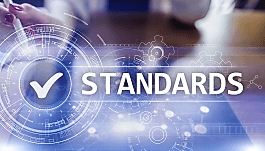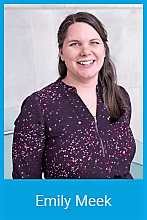Strategies for advancing diversity and inclusion in standards development
October 5, 2022

AWWA Articles
Strategies for advancing diversity and inclusion in standards development
 More than a century ago, forward-looking leaders with the American Water Works Association (AWWA) established a standardization practice in the water sector that has contributed greatly to public health and advancements in water service delivery and treatment.
More than a century ago, forward-looking leaders with the American Water Works Association (AWWA) established a standardization practice in the water sector that has contributed greatly to public health and advancements in water service delivery and treatment.
Since then, AWWA volunteers have produced more than 185 standards covering all areas of water treatment and supply. As new technologies emerge, new standards are developed.
 Emily Meek, an AWWA standards engineer, published an article in the May 2022 issue of Journal AWWA advocating the need to advance diversity and inclusion in today’s standards process.
Emily Meek, an AWWA standards engineer, published an article in the May 2022 issue of Journal AWWA advocating the need to advance diversity and inclusion in today’s standards process.
To recognize World Standards Day this Oct. 14, here are some suggestions from Meek’s article, “They Say Women Drink Water Too.”
- Start taking stock. According to Women in Standards, about 93% of standard-development organizations across the world don’t comprehensively track the demographics of their participants. In part, organizations haven’t wanted to create a barrier to participation, and they haven’t developed a system for storing this information. “But we can’t measure progress if there is no baseline,” the article states.
- Increase participation. Most standards committees have fewer than 30 members from a variety of backgrounds and experience, and members often have difficulty participating in every meeting due to other commitments. In response, committees are becoming more flexible and efficient, switching to hybrid meetings with shorter agendas. This provides an opportunity for a more diverse variety of voices to be heard.
- Generate interest. In the past, standards developers typically recruited volunteers by relying on direct outreach or general engagement with the association to advertise which standards are active. But social media posts and standards action notices have proven to be more successful outreach methods. Try talking about standards on LinkedIn, Twitter and TikTok.
- Support standards volunteers. It’s important that volunteers feel connected and have a safe space to share their opinions. This can be addressed through communication and engagement. Some standard-development organizations are adding onboarding, orientation and mentoring programs to their standard process and using technologies such as Microsoft Teams.
- Consider different gender needs. Gender equity and balanced representation in the standards development process are crucial to responding to the priorities of all genders. ASTM International, the International Organization for Standardization, and the Standards Council of Canada have signed declarations for gender-responsive standards.
“Standards can enable forward thinking, ensuring inclusive design that allows everyone to engage safely and productively in the water sector,” the article stated. “Let’s continue making a better world through better water and developing better standards for everyone.”
For information about volunteering for standards development with AWWA, email standards@awwa.org or go to AWWA’s website volunteer resource page.
Advertisement